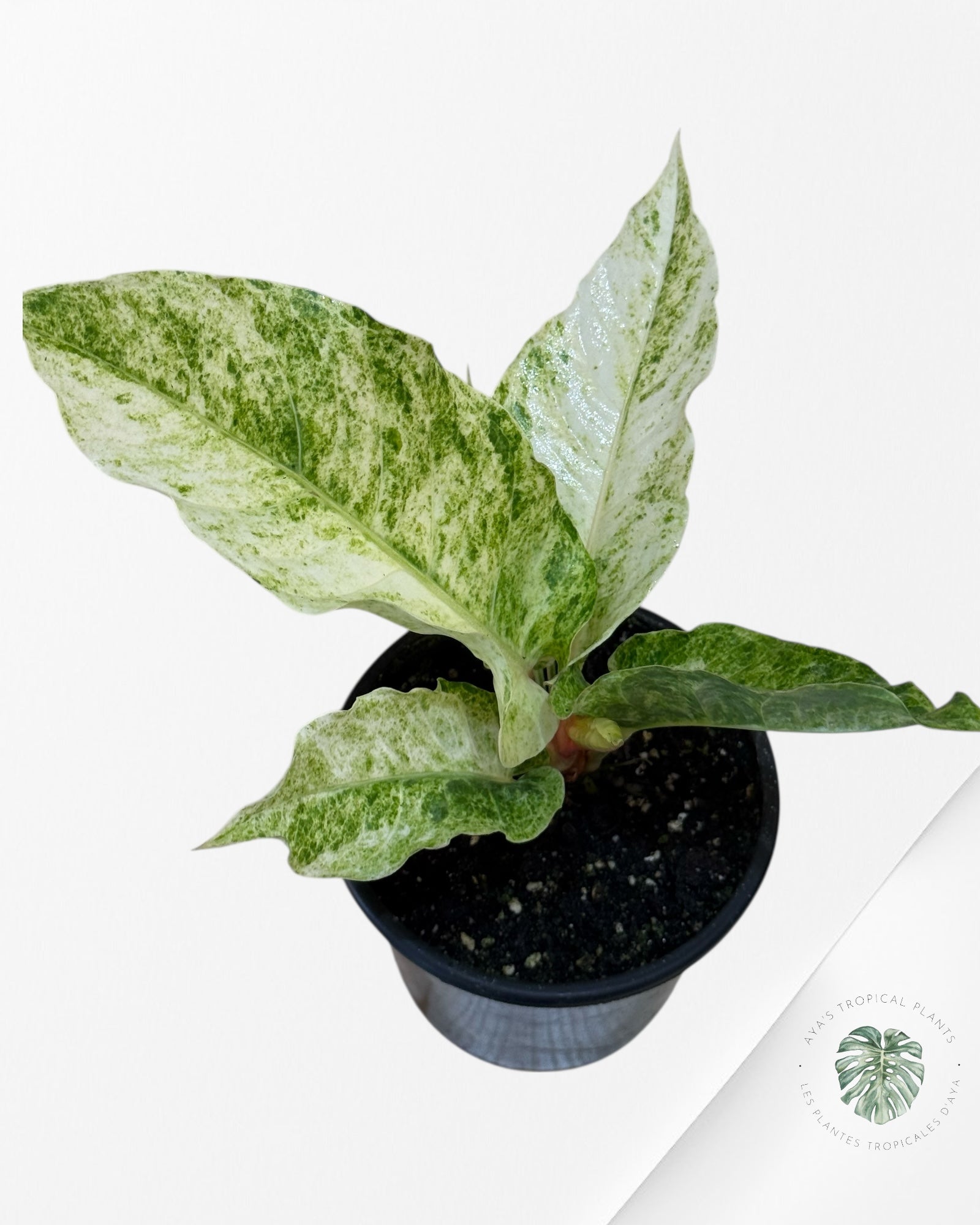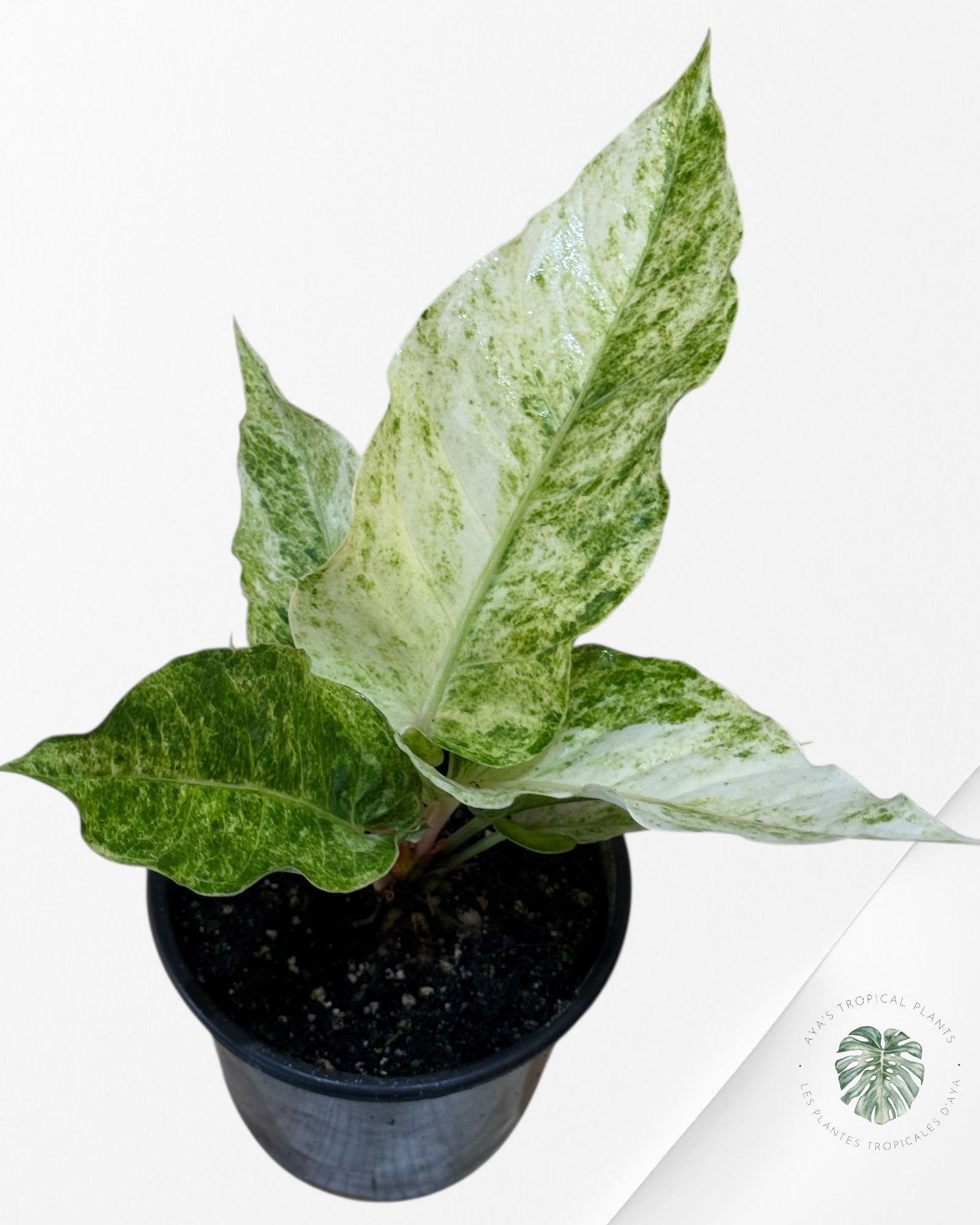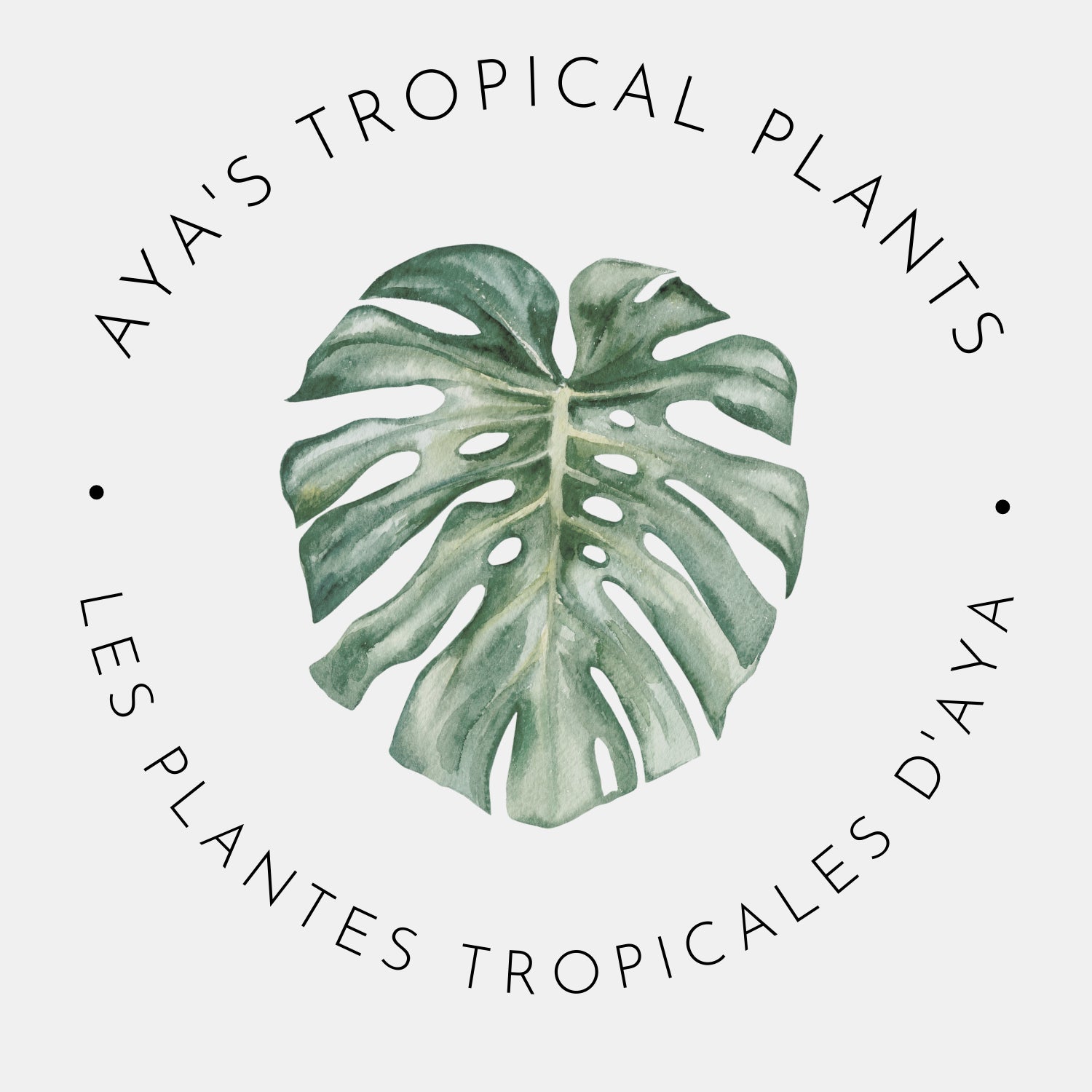

Anthurium Hookeri Aurea-401
🪲 Each plant is carefully treated against unwanted pests.
Note: Leaves with strong variegation are naturally more delicate and may be more prone to browning or slight damage during shipping
The Anthurium Hookeri Aurea is a stunning mutation of the classic Bird’s Nest Anthurium, featuring bright golden-yellow variegation that contrasts beautifully with its thick, glossy green leaves. Each plant develops unique marbling patterns — no two leaves are ever the same.
Native to the tropical rainforests of Central and South America, this variety is strong, fast-growing, and highly adaptable once acclimated. Its thick petioles and textured foliage give it a robust, almost sculptural look that becomes more striking with every new leaf.
This plant thrives in bright, indirect light and high humidity. With proper care, it quickly becomes a centerpiece in any rare plant collection.
Highlights:
- Golden variegation on thick, leathery leaves 🌿
- Vigorous grower and easy to acclimate
- Excellent candidate for collectors seeking rare foliage
- Grows in a compact rosette (“bird’s nest”) form
- Originates from tissue culture for strong, clean growth
Care tips:
💧 Keep the substrate lightly moist — never soggy.
☀️ Provide bright, filtered light to enhance variegation.
🌡️ Ideal temperature: 20–28 °C.
💨 High humidity (60 % +) encourages lush growth.
Shipping
All plants are shipped with their roots wrapped in Sphagnum Moss, and plastic wrap to retain moisture for the root system. Foliage is then wrapped in a soft material, and then the whole plant is wrapped in isolation paper to secure the plant from movement in the box. Upon arrival to your home, check the roots for any signs of damage or rot. If rot appears, trim the affected roots with clean scissors or pruning shears, and plant into the new pot with the above specified growing media. We recommend waiting a day to water your new plant after repotting, as this will reduce the risk of root rot. Please note that yellowing or browning leaves could occur in transit.


